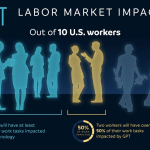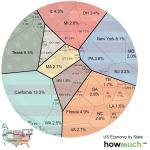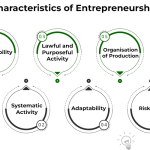Research funding impact plays a crucial role in the landscape of innovation and entrepreneurship, significantly influencing the future trajectory of economic growth in the United States. With recent threats to federal funding, particularly in prestigious institutions like Harvard, the ripple effects can be profound—potentially stalling the development of startups that rely on groundbreaking research. For instance, the freeze on over $2 billion in grants has raised concerns about how such cuts could undermine the vitality of research-driven economic activities. Studies indicate that for every dollar invested in federal biomedical research, there is a return of $2.56 in U.S. economic activity, highlighting the critical relationship between sustained funding, research output, and vibrant entrepreneurial ecosystems. As we face these funding challenges, it becomes increasingly important to recognize the nexus between research funding impact and its significant implications for both startups and the broader economy.
The effects of financial support for academic research are essential not just for innovation but also for cultivating a thriving entrepreneurial environment. When funding channels such as federal grants are disrupted, universities like Harvard face challenges that extend beyond the classroom and laboratory. The critical connection between research initiatives and new business ventures underscores the importance of robust funding mechanisms in fostering an ecosystem where entrepreneurship can flourish. The diminishing flow of resources may hinder the programming that nurtures new talent and innovative ideas, ultimately affecting economic progress. As we delve deeper into the topic, it is evident that understanding the broader repercussions of funding interruptions requires a comprehensive look at how these dynamics interlink with the ambitions of aspiring entrepreneurs.
The Critical Role of Harvard Research Funding
Harvard University’s unique position in fostering innovation hinges significantly on its research funding. The prestigious institution has long served as a nexus for groundbreaking studies that translate into real-world applications. With over $9 billion in federal funding currently under scrutiny and a government-imposed freeze affecting more than $2 billion in grants, the risk to Harvard’s research funding impacts not just the university but echoes through the entire U.S. economy. Such a halt in financial resources can cripple ongoing projects that are vital for technological and biomedical advancements, which are essential for enhancing entrepreneurial pursuits.
In every dollar allocated to research, the return on investment is substantial. Previous studies have shown that federal biomedical research generates approximately $2.56 in economic activity for every dollar invested. The implications of disrupted funding are dire, not just for the university’s innovation pipeline but also for the startups reliant on these academic breakthroughs. A restriction on research funding threatens to halt the development of novel ideas, which skews the landscape for future entrepreneurship and stifles the growth potential of the U.S. economy.
Impact of Research Funding Freeze on Startups
The recent federal funding freeze threatens to undermine a vital source of innovation that fuels startups. Research universities like Harvard act as incubators for new entrepreneurial ventures, helping translate laboratory discoveries into viable business models. With ongoing projects facing budget constraints or even cancellations, the incubation of nascent companies and their pathways to market are jeopardized. The chilling effect of this funding freeze can lead to fewer startups emerging in the coming years; an outcome that could significantly stunt economic momentum and technological progression.
Moreover, the timeline for startups to appear on the horizon is often a three to five-year process, as technologies and concepts developed in academic labs take time to mature into commercial products. By halting federal funding, we risk creating a backlog of innovation that could diminish the U.S. competitive edge in global markets. In a landscape where entrepreneurship thrives on fresh ideas and access to capital, the implications of such funding disruptions could have long-term reverberations in the economy.
The Interconnection Between Research and Economic Growth
The nexus between research funding and economic growth manifests distinctly in the startup ecosystem. The more robust the funding available to research initiatives, the greater the potential for groundbreaking innovations that can catalyze new industries. Economists suggest that any long-term cutbacks in this funding could contract GDP by as much as 3.8 percent, likening the forecasts to economic downturns experienced during past recessions. As startups spawn from research initiatives, the overall effect of diminished support translates directly into slower economic expansion and job creation.
With the increasing dependency of emerging companies on intellectual property generated from academic research, the loss of potential breakthroughs due to funding freezes can lead to a decrease in the digital and technological prowess of the economy. Harvard and similar institutions are pivotal in cultivating talent and fostering the entrepreneurial mindset required for sustainable economic growth. Thus, safeguarding research funding is not merely about supporting universities—it is essential for nurturing the economic ecosystem as a whole.
Entrepreneurship and the Educational Model at Harvard
The entrepreneurial ecosystem at Harvard is not only vibrant due to extensive research funding but also because of the university’s intentional curriculum designed to foster entrepreneurship. With various programs guiding students and faculty alike towards commercialization of their ideas, the university serves as a launchpad for many successful startups. This structured support is underpinned by connections to venture capitalists and a dedicated technology licensing office that enhances collaborative opportunities, driving innovation forward.
The well-established entrepreneurial programs demonstrate how institutional support can breed a culture of enterprise, helping students translate their academic projects into viable business ventures. By prioritizing entrepreneurship in educational frameworks, Harvard encourages students to take calculated risks and explore their ideas, leading to a robust pipeline of innovative startups emerging from campus. However, the imposition of funding freezes threatens this finely-tuned ecosystem, causing a ripple effect that could diminish this cultural emphasis on innovation and entrepreneurship.
Long-Term Ramifications of Funding Cuts on Research Initiatives
The long-term effects stemming from reduced research funding can be profound; the immediate freeze might serve as just a glimpse of the challenges to come. As researchers struggle to maintain projects with dwindling resources, the future of scientific inquiry—which heavily influences technology and medical advancements—becomes uncertain. Moreover, the developmental timeline for nurturing tomorrow’s innovations may extend indefinitely, with the repercussions of halted funding not fully realized for several years.
In the increasingly competitive landscape of global research and development, maintaining a robust funding stream is imperative. The ability for startups to thrive hinges significantly on the groundwork laid by fundamental research, highlighting the interconnectedness of educational institutions, funding, and economic vitality. A rollback in federal support could lead to fewer discoveries, restrained entrepreneurship, and ultimately, less resilience within the market—far-reaching effects that could alter the course of American innovation.
The Future of U.S. Innovation Amidst Funding Challenges
As the situation regarding federal funding continues to develop, the future of U.S. innovation hangs in the balance. Research universities like Harvard stand at the forefront of scientific progress, driving advancements that impact various sectors, including technology and healthcare. However, the current funding freeze poses a significant threat to this critical work, jeopardizing not only current projects but also the plethora of entrepreneurial ventures that rely on robust research outcomes. This stiflement could limit the introduction of disruptive technologies and market solutions in the years to come.
To navigate these turbulent waters, a strategic reevaluation of how research funding is allocated is necessary. The potential challenges posed by the loss of federal support could spur a reevaluation of public and private investment strategies in scientific initiatives. Ultimately, safeguarding research funding is paramount not only for nurturing a diverse startup ecosystem but also for ensuring sustained growth and innovation in the economy as a whole.
The Relationship Between Faculty Research and Startups
The relationship between faculty research and the startup ecosystem is crucial for innovation. Faculty members often lead cutting-edge research projects that can result in technological advances with commercial potential. At Harvard, this connection is increasingly leveraged through collaborative efforts between researchers and entrepreneurs, producing a consistent stream of startups that capitalize on university research. The role of faculty extends beyond mere academic inquiry; they are pivotal in developing practical applications that stem from their research, providing an invaluable bridge to the entrepreneurial landscape.
Furthermore, faculty engagement in commercialization initiatives ensures that research findings are translated into marketable products. The ecosystem thrives when professors and their teams can navigate the licensing process effectively while connecting with venture capital investments. This symbiotic relationship enhances the synergy between academia and the business world, showcasing how vital faculty contributions are to the startup culture while highlighting the potential detriment of funding cuts to this collaborative dynamic.
Student-Led Innovations and Research Funding’s Influence
Harvard’s entrepreneurial programs significantly empower students to take charge of their innovative ideas, with many startups emerging from their academic projects. The success of these initiatives is intertwined with the availability of research funding that backstops student endeavors, facilitating access to resources, mentorship, and guidance. When students engage in research, they develop cutting-edge solutions and products, fueling the entrepreneurial spirit that has become a hallmark of Harvard’s educational philosophy.
Critical to student-led innovations is the understanding that access to research funding enhances the scope of their projects. As future leaders, students’ ability to pursue ambitious ideas depends on the research infrastructure supported by financial investment. The potential for groundbreaking ventures is stymied without adequate funding, which could lead to a reduced pool of student-led startups. Investing in research funding maintains this vibrant ecosystem and fosters a new generation of entrepreneurs ready to impact the market.
Preserving Innovation Through Continuous Investment
The challenge of preserving U.S. innovation is intricately linked to the notion of continuous investment in research funding. As federal support faces uncertainty, it is imperative to advocate for a restored commitment to scientific research as a driver of economic prosperity. Ensuring consistent funding allows universities like Harvard to continue nurturing innovation, which is essential for fostering an environment ripe for entrepreneurial ventures. Without these investments, the continuity of groundbreaking research threatens to falter, stunting innovation at the roots.
Robust funding not only paves the way for breakthroughs but also ensures a steady flow of talent into the startup ecosystem. To truly safeguard the future of U.S. innovation, a collective effort must be made to prioritize and protect research funding. This proactive approach can lead to sustained economic growth, empowering universities to transform research into viable commercial opportunities, and ultimately preserving the very essence of entrepreneurship in America.
Frequently Asked Questions
What is the impact of federal funding freeze on research funding at Harvard?
The federal funding freeze has significantly impacted research funding at Harvard, disrupting over $2 billion in grants for science, medicine, and technology. This freeze jeopardizes not only ongoing research projects but also the broader innovation landscape, potentially leading to a decline in economic growth and startup development.
How does Harvard research funding influence entrepreneurship effects in the U.S.?
Harvard research funding is crucial for fostering entrepreneurship in the U.S. by providing resources that support laboratory innovations. These innovations often translate into startups that contribute to economic growth. A steady influx of research funding fuels the creation of new companies and stimulates the economy.
What are the anticipated long-term effects of cuts to Harvard research funding on economic growth?
Cuts to Harvard’s research funding could shrink the U.S. GDP by 3.8 percent, mirroring the economic downturn experienced during the 2008-2009 recession. Reduced funding hampers the ability of universities to generate commercializable ideas, which are vital for long-term economic growth.
Can Harvard’s role in startups and research funding be impacted by government initiatives?
Yes, government initiatives, particularly those freezing federal funding, directly affect Harvard’s role in the startup ecosystem. This disruption can hinder the university’s capacity to innovate and support entrepreneurship, ultimately affecting the formation of new businesses.
How does research funding affect the development of startups and innovation?
Research funding provides the necessary resources for labs to generate innovative ideas. At institutions like Harvard, increased funding results in more startups emerging from academic research, driving economic growth and technological advancement.
Why is federal funding critical for tech and biomedical startups?
Federal funding is critical because it enhances research capabilities, allowing for the generation of groundbreaking ideas. These ideas often serve as the foundation for tech and biomedical startups, which play a vital role in stimulating economic growth.
What are the signs of disruption in the startup ecosystem due to a federal funding freeze?
Signs of disruption include hiring freezes, cancellations of research initiatives, and a decline in new startups emerging from academic programs. As the full effects of the funding freeze are felt over the next few years, fewer promising companies may arise from these academic environments.
How can the damage from federal funding cuts to research be mitigated?
To mitigate the damage from cuts to research funding, it is essential to restore grant accessibility and invest in innovative research initiatives. This would help revive the incubation systems at universities like Harvard, fostering a rich environment for startups and economic recovery.
What role does Harvard play in creating a conducive environment for startups through research funding?
Harvard plays a vital role by providing a robust entrepreneurial curriculum and pathways for commercialization from research. The connection between research funding and the university’s support mechanisms fosters an entrepreneurial ecosystem that cultivates successful startups.
| Key Point | Description |
|---|---|
| Funding Freeze | The Trump administration froze over $2 billion in research grants at Harvard, impacting U.S. innovation. |
| Economic Impact | Cuts to research funding could shrink GDP by 3.8%, similar to the 2008-2009 Great Recession. |
| Startup Ecosystem | Research universities are essential for startups, facilitating commercialization of academic research. |
| Entrepreneurship Education | Harvard has a rich entrepreneurship curriculum, fostering numerous startups from student projects. |
| Long-term Effects | The funding freeze will yield medium to long-term effects on startup formation and innovation. |
Summary
Research funding impact is critical for driving economic growth and innovation in the U.S. Research universities like Harvard play a pivotal role in cultivating startups and fostering entrepreneurial spirit. The recent funding freeze poses a significant threat not only to academic research but also to the broader economy, with potential GDP reductions resembling past economic downturns. Without adequate funding, the momentum of scientific discovery and commercialization will be stymied, leading to fewer innovative companies emerging in the future. The long-term consequences of this funding crisis necessitate urgent attention to preserve the vibrant ecosystem of research and entrepreneurship.







